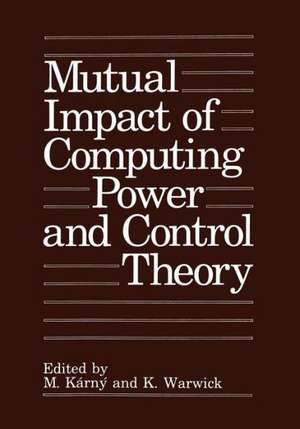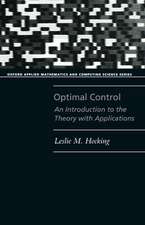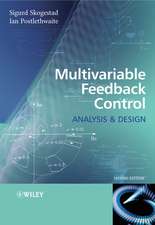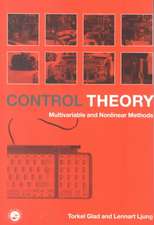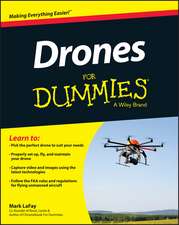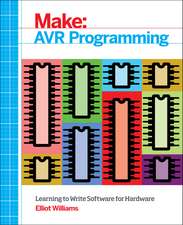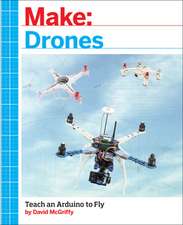Mutual Impact of Computing Power and Control Theory
Editat de M. Kárny, K. Warwicken Limba Engleză Paperback – 24 oct 2012
Preț: 399.88 lei
Nou
Puncte Express: 600
Preț estimativ în valută:
76.53€ • 79.60$ • 63.18£
76.53€ • 79.60$ • 63.18£
Carte tipărită la comandă
Livrare economică 14-28 aprilie
Preluare comenzi: 021 569.72.76
Specificații
ISBN-13: 9781461362913
ISBN-10: 1461362911
Pagini: 400
Ilustrații: XI, 385 p.
Dimensiuni: 178 x 254 x 21 mm
Greutate: 0.69 kg
Ediția:Softcover reprint of the original 1st ed. 1993
Editura: Springer Us
Colecția Springer
Locul publicării:New York, NY, United States
ISBN-10: 1461362911
Pagini: 400
Ilustrații: XI, 385 p.
Dimensiuni: 178 x 254 x 21 mm
Greutate: 0.69 kg
Ediția:Softcover reprint of the original 1st ed. 1993
Editura: Springer Us
Colecția Springer
Locul publicării:New York, NY, United States
Public țintă
ResearchCuprins
Upcoming Numerical Linear Algebra Issues in Systems and Control Theory.- On Design of Approximate Finite-Dimensional Estimators: the Bayesian View.- Sidestepping the Certainty Equivalence in 2-DOF Adaptive Control Via Multiple Implicit Identifiers.- Simulation and Control of Gas Transport and Distribution by Large-Scale Pipeline Networks.- Complexity of Dynamic Models for Intelligent Control.- The Most Simple Systolic Architectures for Parallel Probabilistic Searching Algorithms.- On the Riemannian Interpretation of the Gauss—Newton Algorithm.- Recursive Least Squares Approximation of Bayesian Non-Gaussian/Non-Linear Estimation.- Fundamental Properties of Real Computers.- A Numerical Method for Computing the Approximate Solution of the Infinite-Dimensional Discrete-Time Optimal Linear Filtering Problem.- Smart Matrices.- Branch and Bound Algorithm for Global Optimization in Control Theory.- Mapping LQ Control Design on Fixed-Size Array Processors.- Identification of Data-Compatible Models for Control Applications.- MIMO — A Set of SISO? Multivariate System Adaptively Controlled as a Set of Single-Input Single-Output Models.- Extensions of Standard CADCS Environment for Parallel Computation and Real Time Control.- On the Ordering of Characteristic Input-Output Modes in MIMO Discrete-Time Systems.- Regularised Lattice-Ladder Adaptive Filter.- Neural Network Applications — Case Studies.- A Virtual Software Environment for Artificial Neural Networks on General Purpose Parallel Architectures.- Shape Discrimination and Classification in Robotic Vision Using Scaled Normalized Central Moments.- Autotuned Predictive Control.- Multivariable Constrained Adaptive Predictive Control Based on Pole Placement Design.- The Epsilon - Ritz Method for Solving Optimal Control Problemson Parallel Computers.- Robust PID Control.- Advanced Algorithms Contra Lack of Computing Power.- Personal-Computer-Oriented Systems of Adaptive Identification.- Predictive Control with Constrained Spline Input Signal.- Expert System-Driven Controllers.
